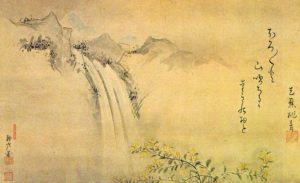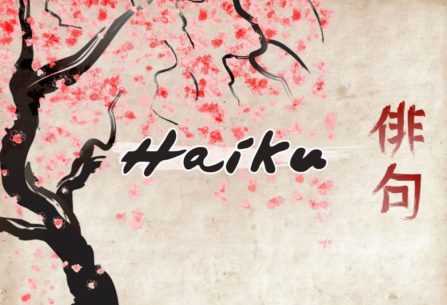Dunkirk NY – Recently I made the decision to join the Haiku Society of America. I was hesitant to do so for two reasons. One is that I am not much of a joiner. The second is that, when I join organizations, I have the unfortunate tendency to be someone who finds faults within the group. I think this tendency comes from being a lifelong teacher. When you teach, you spend an inordinate amount of time finding and correcting faults and flaws. I always liked to offer positive feedback, and made a point of doing so when warranted. But on the whole, my job consisted of trying to weed out flaws and bad habits in young actors and replace them with more useful and positive techniques.
I already know what makes me hesitant about joining HSA. Its members, from what I can gather from photos and pictures and writings, tends to consist almost exclusively of older, white, well-educated people. There appears to be little diversity within the organization. And, to be as blunt and fair as possible, this description of the overall membership demographic fits me to a “T”, with the only exception being my Puerto Rican heritage. I do not wish to make this appear to be a judgement against the organization, just an observation. I could very well be wrong. But there is little external evidence to the contrary.
It is my misfortune to have come to a place in my life where my sense of my personal spirituality has intersected with the “mindfulness” and “minimalist” movements in modern culture. Since my 20s I have been drawn to eastern thought and philosophy, heavily influenced by my reading of the works of the Catholic Trappist monk Thomas Merton. Merton stands at the apex of the synergy between Catholic mystic tradition and eastern Zen Buddhism tradition. My interest in haiku is, at least in my opinion, a natural outgrowth of this aspect of my life. It’s something I have carried with me for more than 40 years now, not something that has sprung up from the current fads.
This is why I am so hesitant to join and share my haiku with others. I fear that a lifelong interest in eastern/western spirituality will be mistaken for having jumped on recent trends. I’ve actually little doubt that other haiku writers are good people – they are probably fine and wonderful human beings, and not trend followers. It’s also clear that many of them have been writing haiku for much longer than I have, so they are committed to the form and the “lifestyle” (for want of a better word). And haiku writing is not exactly a popularized method even of writing poetry. I’ve read a few anthologies, and there are a few names out there that are considered prominent in this arena. I’ve also read much of the Japanese masters such as Basho and Issa to this point. I’ve even read a small anthology of baseball haiku. So, despite my misgivings, I feel I have to take the jump.
What is most interesting to me is the current state of haiku form. Adapting the Japanese form of haiku to English has apparently been fraught with cultural baggage when it comes to form. There has been much discussion on this point. Essentially speaking, form comes down to a question of the amount of sound in a haiku, whether that sound is called on (in Japanese style) or syllable (English style). As I read about the discussions surrounding this point, it seems to me that the question at this point should be moot. I think what should be discussed more is not how English haiku compares to Japanese haiku, but rather how traditional forms of English poetic style can inform English haiku and work to make it independent of Japanese haiku. In this regard, I think the early sense of English haiku taking on a 5-7-5 format of syllables has more promise than people may think.
In my reading and research, I read this article by Michael Dylan Welch, who appears to be a pretty well-known haiku poet. I wrote this article on Medium in defense of the 5-7-5 format, which I happen to like. Mr. Welch is apparently the one who designated February as National Haiku Writing Month (“because it’s the shortest month”), and he discourages people from writing 5-7-5 haiku. If I participate in NaHaiWriMo, I think I’m going to write a lot of 5-7-5 haiku just to be difficult and different. It’s in my contrarian blood. I’m also going to write a post here at some point detailing a bit more why I think English haiku writing should lean more on English poetic traditions rather than lean on trying to imitate Japanese language style with English. If I am going to join up here, I might as well start on the “wrong” foot.
I should make clear, though, that I may not have time to write a haiku every day. A lot depends on how caring for Mom eventually turns out in February. So if I don’t get a haiku in every day, no big deal. I’ll do what I can, and perhaps here and there post something I’ve written in the past as a substitute for the day. Since I don’t have Facebook, I can’t post to the NaHaiWriMo FB site, but that’s of no matter to me. One does what one can with the moments presented. -twl


